
What if carbon was much more than just a funding mechanism?
Abstract: What we agree by common consent to call ‘carbon funding’ is seen primarily by many agencies and NGOs as providing the opportunity to leverage new financial resources at a time when development aid is increasingly scarce or difficult to secure. But over and above the financial dimension, the methods applied in the context of ‘carbon’ projects lead project developers to work in new ways, take a long-term view of the work they do, and put in place systems to ensure detailed measurement of project impacts.
Keywords: development, climate change, NGOs, agroforestry, food security, carbon finance, rural communities, innovative financial model, sustainable agriculture,corporate responsibility
Thematic: Climate Change
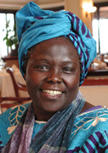
Unbowed
Abstract: In her autobiography, the late Wangari Maathai, founder of the Green Belt Movement and Nobel Peace Prize winner, talks about the village where she spent her childhood. Through her very personal and beautiful testimonial, Wangari allows us to capture the whole cycle of life, how water, plants, food and livelihoods are interconnected.
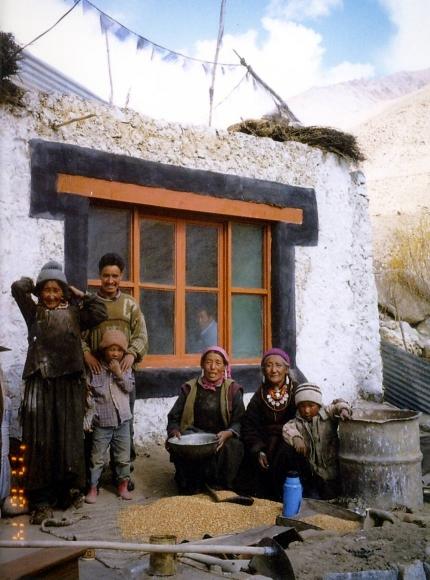
Suppressed Demand and the Carbon Markets: Does development have to become dirty before it qualifies to become clean?
Abstract: Suppressed Demand refers to a situation where Minimum Services Levels (MSL) necessary for human development are unavailable to people or only available to an inadequate level. Numerous barriers, such as low income levels or lack of infrastructure and skills prevent access to MSLs, such as potable water, cooking energy, lighting and electrification.
Keywords: suppressed demand, Clean Development Mechanism, small scale,minimum services level, Millennium Development Goals, passive solar houses
Thematic: Climate Change
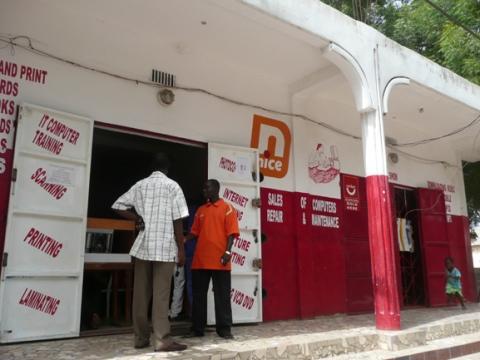
The BipBop programme: Providing access to reliable, affordable and clean energy with a combined approach of investment, offers and training
Abstract: Universal access to clean energy is a major worldwide concern which has been reaffirmed when 2012 was declared by the United Nations as the International Year of Sustainable Energy for All. With this goal in mind, multinational corporations are developing inclusive business approaches targeting low-income populations. To be considered successful, these strategies must participate in development, be sustainable, and impact as many people as possible.
Keywords: Base of the Pyramid, Bottom of the Pyramid, inclusive business, Access to Energy, BipBop, Schneider Electric
Thematic: Biodiversity and Natural Resources
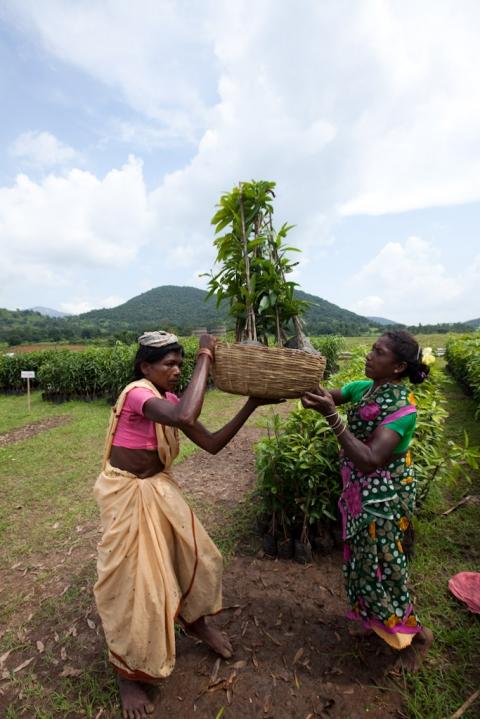
Challenges of Community-Forestry Based Carbon Projects: Process, Participation, Performance
Abstract: This paper addresses the challenges in community-based management of carbon projects in developing countries. It is based on four years of experience in identifying, developing, implementing, and monitoring mangrove restoration and agroforestry projects in upland and coastal areas of India, Indonesia, and Senegal.
Keywords: agroforestry, carbon methodology, monitoring, high scale implementation, mangrove
Thematic: Agricultural Development
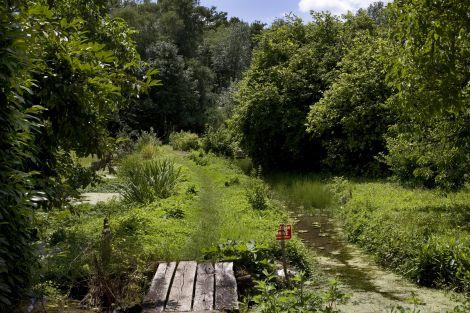
How to restore dry forest ecosystems
Abstract: AIDER is a Peruvian non-governmental organization working since 1992 on forest management activities, watershed management and urban forest management on tropical humid and dry forest at a national level. AIDER and the José Ignacio Távara Pasapera rural community have been working on dry forest management and recovery since 1992.
Keywords: sustainable development, agriculture, forests, natural resources
Thematic: Biodiversity and Natural Resources
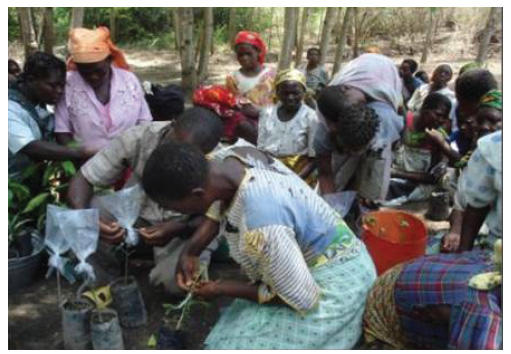
Scaling up Agroforestry to Achieve Food Security and Environmental Protection among Smallholder Farmers in Malawi
Abstract: Malawi is a land-locked country in southern Africa. Three-fourths of Malawi’s 13 million people rely on smallholder agriculture for their livelihoods. Increasing population, accelerating deforestation, poor soil and water management, and increasing poverty and land degradation directly impact the food security and human health of millions of Malawians.
Keywords: agroforestry, food security, Malawi, World Agroforestry Centre (ICRAF),development partners, soil degradation
Thematic: Biodiversity and Natural Resources
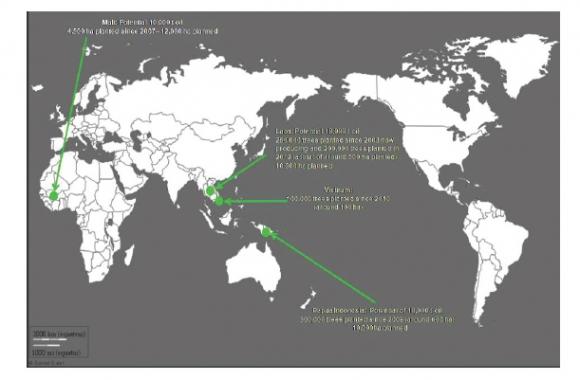
Developing jatropha projects with smallholder farmers
Abstract: Based on the observation, the analysis and the comparison of four smallholder based jatropha projects developed by Eco-Carbone, located in distinct climatic and socio-economical conditions, this paper aims at drawing on the operator’s experience to show what are the social, technical and economical prerequisites and the necessary management strategies, for such projects to be a success, both for the project operator and the farmers.
Keywords: smallholder agriculture, jatropha, biofuel projects, private-public partnerships
Thematic: Social issues and Governance
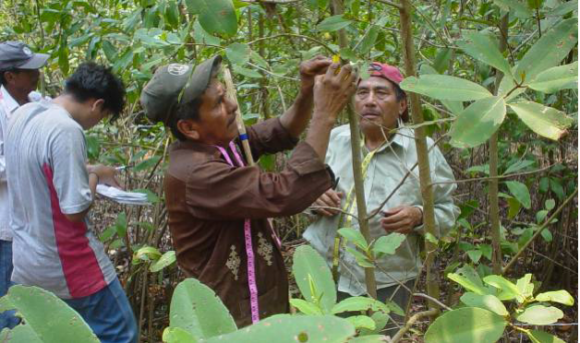
Community strategy for mangrove forest conservation: Conquista Campesina Conservation Easement
Abstract: The drafting of a community plan for mangrove forest conservation in the communal land of Conquista Campesina (Tapachula, Chiapas, Mexico) is part of a more ambitious project aimed at establishing a protected wetlands corridor in the coastal region of the state of Chiapas. The purpose is to guarantee the conservation, protection and restoration of priority wetlands, placing special emphasis on vulnerable ecosystems.
Keywords: Mexico, mangrove, conservation, community plan
Thematic: Agricultural Development
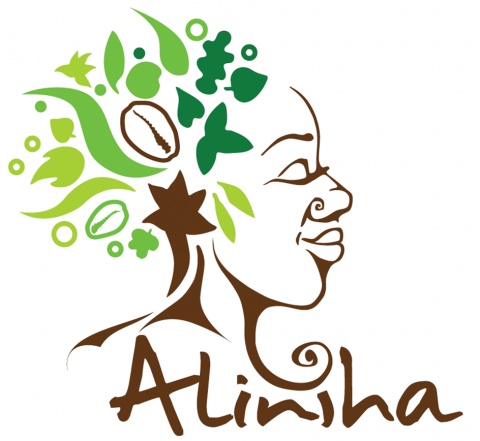
Aliniha: women leaders at the heart of sustainable development in west Africa
Abstract: Born of an original association between tree southern partners in 2007, Aliniha is a methodology to link up women, the pillars of African society, for the sustainable development of their region, through their work and for their benefit. The Aliniha methodology combines the various areas of expertise of the three social entrepreneurs who created it, namely microfinance, improving women's skills, and management and protection of natural resources.
Keywords: Women, Sustainable development, Micro-finance, Social credit,Management ofnatural resources, Skills improvement, West Africa
Thematic: Social issues and Governance
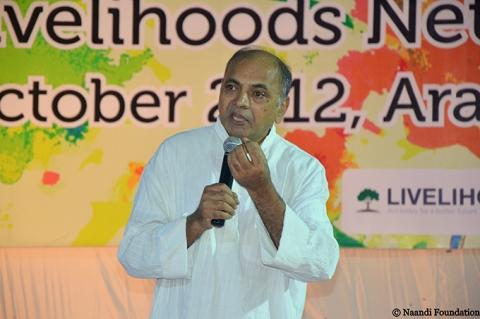
Culture and Development, an Experiment with Empowerment
Abstract: The Adivasi Academy has been implementing a comprehensive cultural approach promoting the Adivisi community's empowerment in different fields such as culture, education, healthcare, agriculture and economy. The Adivasi community had been facing lack of access and marginalization partly due to the British colonialism; during which many cultural misunderstandings related to communities’ and tribes’ costumes occurred.
Keywords: community, culture, India, empowerment, Adivasi, colonialism, Criminal Tribes Act, CTA
Thematic: Social issues and Governance
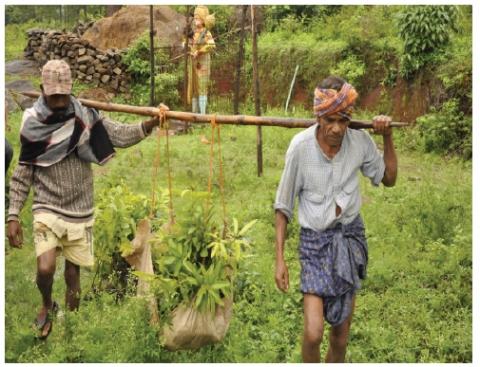
Forging a Template for Sustainable Rural Development: The Araku Way
Abstract: India, as in most parts of the world, suffers from forest depletion. The marginalised communities dependent on these forests for their sustenance and well-being are the most affected. The Forestry Department's post-colonial regulations further exacerbate the plight of these people – they have long since lost their sense of shared custodianship of forest and as consequently their nutrition and livelihoods are severely challenged. Under these stressful circumstances there is no incentive to preserve or restore the remaining forest cover.
Keywords: livelihoods, Adivasi, carbon credits, global positioning system, GPS, low external input sustainable agriculture, LEISA, Patta, village horticultural coordinator
Thematic: Biodiversity and Natural Resources
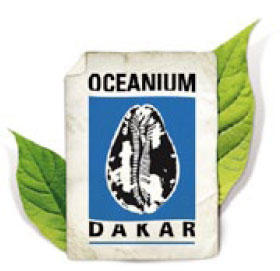
Oceanium Dakar: The daily struggle for the integrated community-based protection of West Africa’s marine and coastal ecosystems
Abstract: The coastlines and deltas of West Africa have suffered—and continue to suffer—significant environmental damage. Although they fulfill crucial functions, their mangroves have been subjected to widespread destruction. The Senegalese NGO Oceanium has been combatting this phenomenon since 2006 by sensitizing and involving the surrounding populations.
Keywords: Senegal, conservation, mangroves, reforestation, local communities,awareness-raising, mobilization, participatory method, large scale, replicability,halieutic resources
Thematic: Biodiversity and Natural Resources
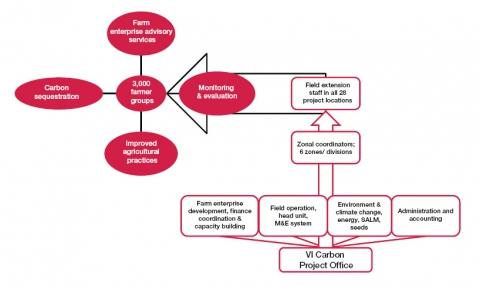
Carbon Intensification and Poverty Reduction in Kenya: Lessons from the Kenya Agricultural Carbon Project
Abstract: The Kenya Agricultural Carbon Project, implemented by the NGO Vi Agroforestry, is breaking new ground in designing and implementing climate finance projects in the agricultural sector. For the first time, while increasing agricultural productivity and enhancing resilience to climate change, smallholder farmers in Africa will receive benefits for greenhouse gas mitigation based on sustainable agricultural land management.
Keywords: Kenya, agriculture, climate change, carbon, finance, resilience,mitigation, sequestration, sustainable management, greenhouse gas, emissions
Thematic: Climate Change
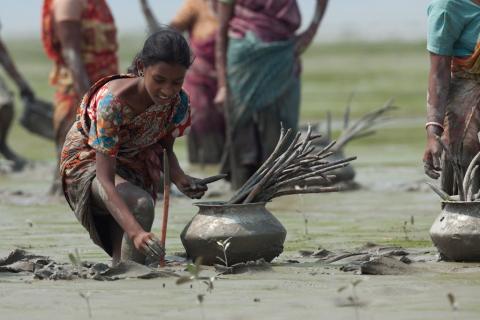
Scaling of mangrove afforestation with carbon finance to create significant impact on the biodiversity – a new paradigm in biodiversity conservation models
Abstract: Sunderbans has undergone a huge loss of forest cover in the past century. Population pressure ever increasing, the administration is more intent on developing economic activities in the area. However no economic activities will sustain if the environmental vulnerability of the region is not properly addressed. Mangroves form the basis of the ecosystem and large scale restoration of this mangrove cover on a scientific basis can create the necessary impact on the biodiversity and mitigate climate change.
Keywords: India, Clean Development Mechanism, Mangrove, Climate change,Carbon finance, Forest, REDD+, Ecosystem, Biodiversity, Sustainability
Thematic: Agricultural Development

